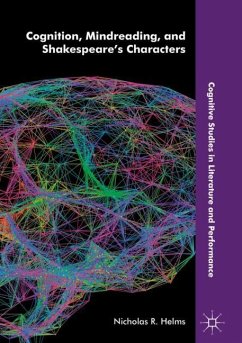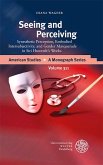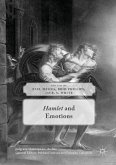Cognition, Mindreading, and Shakespeare's Characters brings cognitive science to Shakespeare, applying contemporary theories of mindreading to Shakespeare's construction of character. Building on the work of the philosopher Alvin Goldman and cognitive literary critics such as Bruce McConachie and Lisa Zunshine, Nicholas Helms uses the language of mindreading to analyze inference and imagination throughout Shakespeare's plays, dwelling at length on misread minds in King Lear, Much Ado About Nothing, Othello, and Romeo and Juliet. Shakespeare manipulates the mechanics of misreading to cultivate an early modern audience of adept mindreaders, an audience that continues to contemplate the moral ramifications of Shakespeare's characters even after leaving the playhouse. Using this cognitive literary approach, Helms reveals how misreading fuels Shakespeare's enduring popular appeal and investigates the ways in which Shakespeare's characters can both corroborate and challengecontemporary cognitive theories of the human mind.
Bitte wählen Sie Ihr Anliegen aus.
Rechnungen
Retourenschein anfordern
Bestellstatus
Storno








